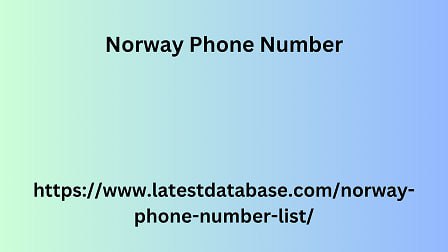Post by account_disabled on Feb 28, 2024 3:13:18 GMT -5
You don't go on vacation to Menlo Park in the summer. Indeed, the summer seems to be the Facebook team's favorite moment to implement those changes that shake, like nightmares, the dreams of marketers across the globe, forced to chase the constant news of Mark Zuckenberg's social network. From Clear History to Off-Facebook Activity It happened last year too: the return from the August holidays coincided with the launch of some updates, including the function called Clear History . Announced in May 2018, Clear History would allow users to delete all activities carried out outside of Facebook and tracked through tools such as the pixel. In practice, with this functionality, each member has the possibility of deleting the history of the databases present in the social network, viewing the information on apps and sites with which they have interacted and deleting them from their account.
By taking partial control of that information, you can opt out of tracking not only past activity shared by your account, but future activity as well. I use the verb "disconnect" because your activity still remains tracked by the pixel but, by deleting your history, it is no longer associated with Norway Phone Number your account. The tool is currently available in Spain, Ireland and South Korea but will arrive soon, very soon, also in Italy. In fact, summer 2019 sees the introduction of the Off-Facebook Activity tool : a section that allows you to manage and delete all the data that the social network has collected on individual users, in which the Clear History function is incorporated. Is this the end of Facebook advertising? These innovations were introduced with the right objective of protecting the privacy of users' personal data, also following the controversy sparked by the Cambridge Analytica scandal.

But worrying questions arise for company pages that advertise on Facebook: if a user can delete his browsing data, then can he avoid all adverts and retargeting activities ? The answer is no: if a user chooses to delete the history of his external activities from Facebook, he will still be reached by sponsored posts, but he will not see the ads of the companies with which he interacted, for example by visiting their website. In short, he will not be "safe" from advertising, but he simply will not receive advertisements from companies that he follows and in which he is really interested. How is it possible then to continue using Facebook advertising without wasting budget? Personas and content at the center Given the importance of web history for successful targeting, the innovations introduced by Facebook lead me to see at least three considerations, and as many actions, to be taken to address this change, putting personas and content at the center of the marketing strategy .
By taking partial control of that information, you can opt out of tracking not only past activity shared by your account, but future activity as well. I use the verb "disconnect" because your activity still remains tracked by the pixel but, by deleting your history, it is no longer associated with Norway Phone Number your account. The tool is currently available in Spain, Ireland and South Korea but will arrive soon, very soon, also in Italy. In fact, summer 2019 sees the introduction of the Off-Facebook Activity tool : a section that allows you to manage and delete all the data that the social network has collected on individual users, in which the Clear History function is incorporated. Is this the end of Facebook advertising? These innovations were introduced with the right objective of protecting the privacy of users' personal data, also following the controversy sparked by the Cambridge Analytica scandal.

But worrying questions arise for company pages that advertise on Facebook: if a user can delete his browsing data, then can he avoid all adverts and retargeting activities ? The answer is no: if a user chooses to delete the history of his external activities from Facebook, he will still be reached by sponsored posts, but he will not see the ads of the companies with which he interacted, for example by visiting their website. In short, he will not be "safe" from advertising, but he simply will not receive advertisements from companies that he follows and in which he is really interested. How is it possible then to continue using Facebook advertising without wasting budget? Personas and content at the center Given the importance of web history for successful targeting, the innovations introduced by Facebook lead me to see at least three considerations, and as many actions, to be taken to address this change, putting personas and content at the center of the marketing strategy .


